Thriving edible mushroom cultivation
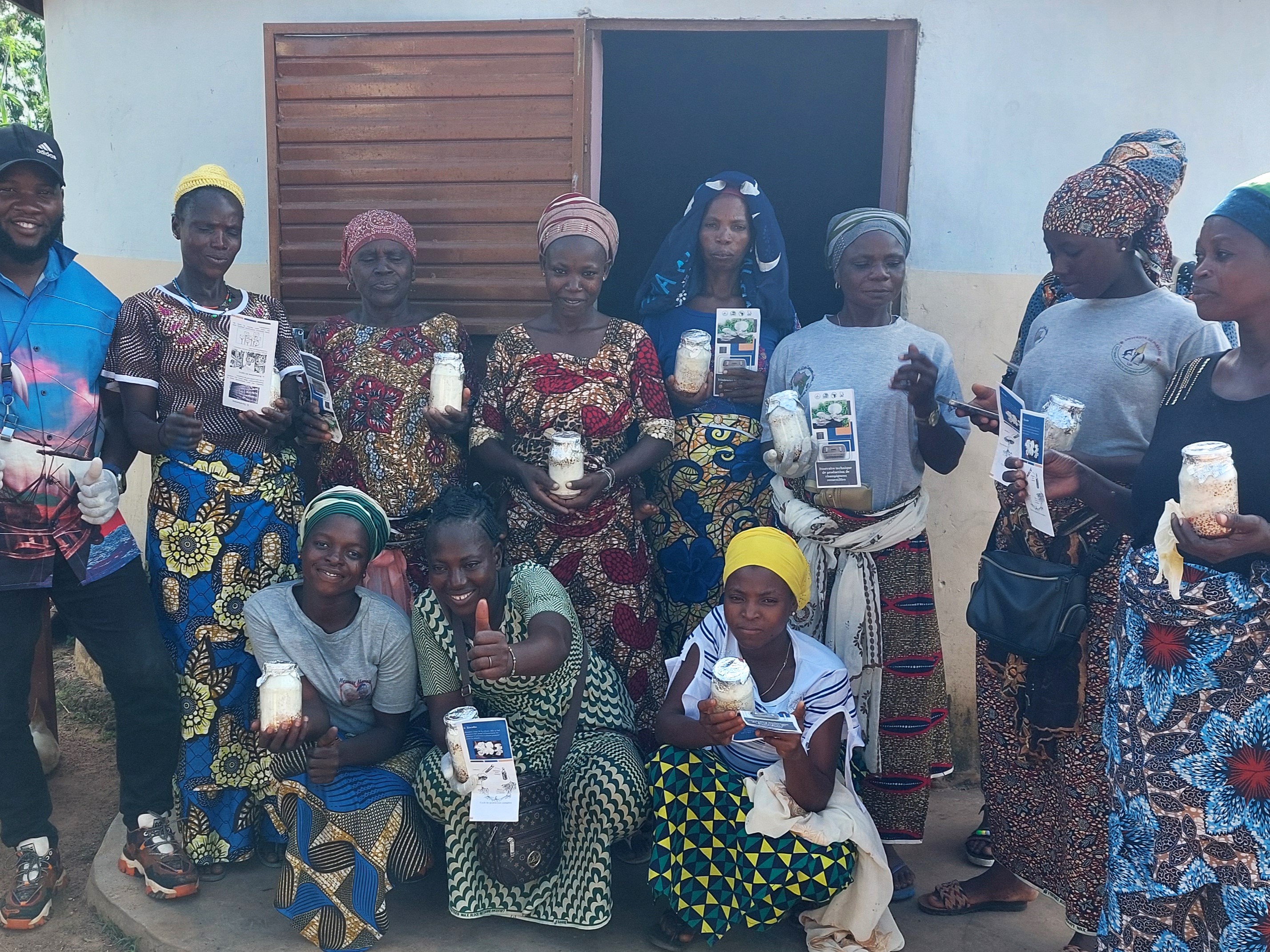
Women receive fungal grain spawn. Credit - Wilfrid Adjimoti.
Economic Potential of Edible Mushrooms in Benin: Advancing Rural Livelihoods and Gender Inclusion
Forests are under increasing pressure from anthropogenic activities. Non-timber forest products such as fruits, nuts, medicinal plants, and wild edible mushrooms offer a sustainable alternative that balances conservation and economic development of local communities while preserving forest ecosystems. The Fungal Conservation in Sub-Saharan Africa (FC-SSA) project is a pioneering initiative aimed at restoring mushroom habitats while contributing to the reduction of poverty and gender inequalities in rural areas in Benin. To help increase the purchasing power of women in the target areas, mushroom cultivation has been identified as a key activity. The project empowers 90 women from 10 villages, allowing them to gain practical experience in growing edible mushrooms. Alongside cultivation efforts, the project fosters sustainable harvesting practices for wild mushrooms, an invaluable economic and cultural resource.
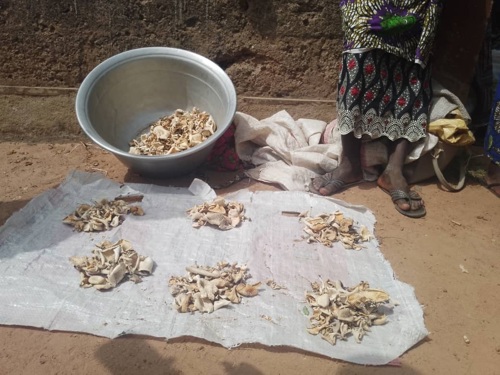
Mushroom cultivation: A solution to reduce environmental degradation and poverty in rural Benin
Mushroom cultivation represents a multifaceted solution to reduce environmental degradation and poverty in rural areas of Benin. Each year, hundreds of thousands of tonnes of agricultural waste (such as rice straw, corn stalks and cobs, sorghum stalks, or millet husks) are produced and often burned by the farmers. This practice contributes to air pollution, greenhouse gas emissions, and soil degradation. Nowadays, this agricultural waste is valued as substrate in the production of edible mushrooms. Through mushroom cultivation, we are attempting to reduce such environmental pollution, whilst contributing to increase the purchasing power and food security of rural communities in the target zone of the project. Women are selected and trained on best practices of mushroom cultivation, through environmentally-friendly agricultural practices.
Because it is accessible to everyone and requires minimal space, mushroom cultivation is particularly suitable for rural women of the target zones who often have limited access to resources including the lack of financial power to acquire agricultural tools. Cultural and legislative barriers often restrict women's access to land, hindering conventional crop production, while the allocation of land to cash crops and exotic trees further exacerbates these challenges. In addition, to cope with the national agricultural politics, large areas of land are dedicated to cash crops (cotton and soja) and the plantation of exotic trees (such as cashew trees). Current agricultural policies not only reduce the availability of land for food crops but also reduce women’s access to agricultural land. In such context, mushroom cultivation is most suitable for rural women with the hope to secure a balance between men and women regarding the access to production resources. Unlike crops such as cotton or yams that require many hectares at once, women will cultivate the mushrooms in small spaces, such as a home garden, with a short growing cycle of two to three weeks. This allows women to generate income quickly, creating promising economic opportunities for rural communities.
Over four days, rural women of the target zone were trained in mushroom cultivation via three different steps: substrate preparation, mycelium inoculation, and incubation. Technical aspects regarding the building of the growing room, including aeration, watering the substrate and the growing room, and lighting the room, have been discussed. The training was operated by the project’s lead organisation, the Tropical Mycology and Plant-Fungi Interactions Research Unit of the University of Parakou (MyTIPS).
At the end of the training, participants were provided with mushroom production kits, including fungal spawn and all the necessary tools for cultivation. To sustain the activities, a close collaborative tandem is established between MyTIPS and the farmers. MyTIPS is committed to producing and selling the fungal grain spawn on a regular basis to the farmers at a competitive price, but also to securing a close follow-up in order to help resolve any technical challenges. After the harvest, MyTIPS will buy the fresh mushrooms from the farmers, channelling the harvests (after drying) for resale in urban markets and restaurants in nearby cities (Natitingou, Djougou, and Parakou).
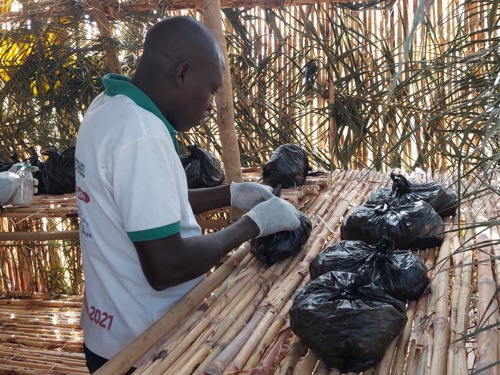
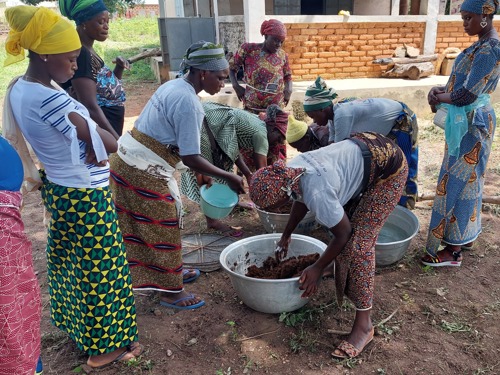
Economic empowerment of rural women
Recurrent production costs include the substrates and the fungal grain spawn, while the income generated varies according to the volumes produced and market prices. On average, a farmer generates a net income of 65,000 CFA francs (120 USD) for 1 cultivation cycle, sufficient to cover the pressing needs of households. It takes at most 3 weeks to complete a production cycle.
In rural households of the target zone, women often have significant responsibilities, including covering expenses for children's education, healthcare, and nutrition, while men typically focus on agricultural or community investments. However, the lack of a stable income often limits the ability of the women to meet these essential needs. With the income generated from mushroom cultivation, women are now able to cover these expenses, while simultaneously enhancing their economic and social empowerment. By earning their own income, women gain greater self-confidence and assume a more influential role in household decision-making.
To optimise resources, beneficiaries are encouraged to form cooperatives. This collective approach not only reduces production costs and improves access to markets but also provides a platform for negotiating fairer prices, thus helping to address economic gender inequalities. In each of the ten target villages, women were sorted into two groups of four or five people.
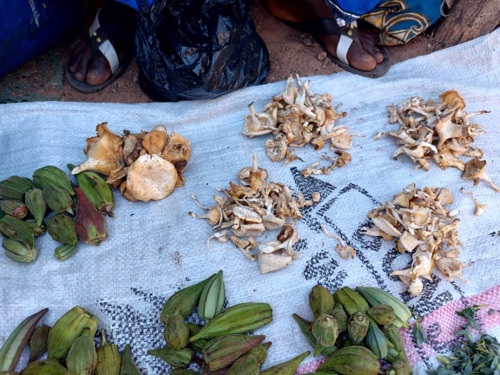
Looking ahead
In Benin, where school canteens play a crucial role in combating malnutrition and school dropouts, introducing mushrooms as part of the food ration in these programmes offers a dual benefit - enhancing children's nutrition due to the high protein content and essential nutrients of the mushrooms, while also providing a stable market for local women producers. As a result, school children enjoy better health and improved learning capacity, while women producers strengthen their economic security by reducing dependence on market fluctuations. We are intending to expand the mushroom cultivation to cover a few schools of the target zone. In addition, expanding this training to other rural communities could sustainably transform women's livelihoods while improving the quality of life for children. Aligned with the Sustainable Development Goals (SDGs), this initiative is of vital importance. By utilising agricultural by-products as substrate, it contributes to environmental conservation and the reduction of greenhouse gas emissions, supporting SDGs 13 and 15. Additionally, the development of a value chain for edible mushrooms significantly reduces poverty (SDG 1), strengthens the fight against food insecurity (SDG 2), and promotes income-generating activities (SDG 8).

Written by NS Yorou, W Adjimoti, R Dramani, DMT Hegbe, G Soliman, and DW Minter. For more information on this Darwin Initiative Main project 30-020, led by University of Parakou, please click here.
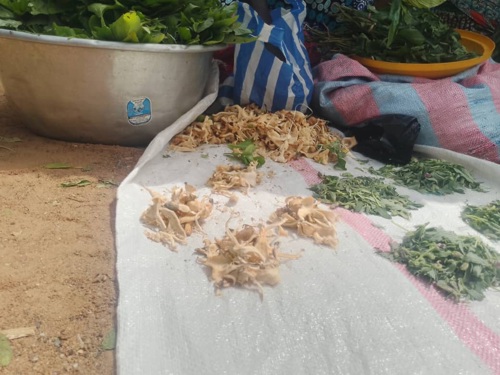
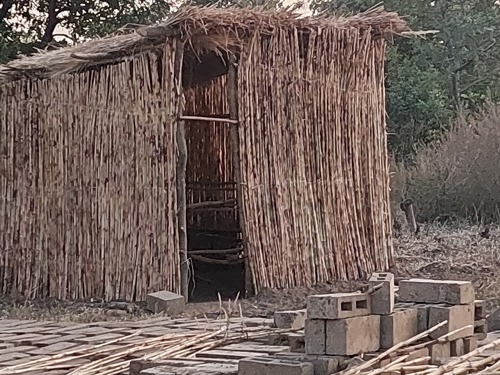
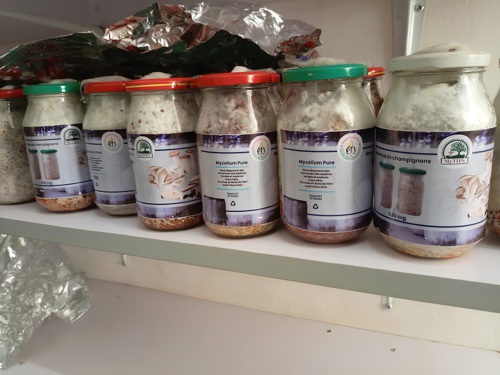
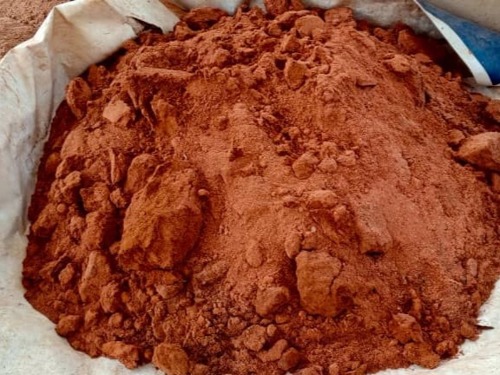
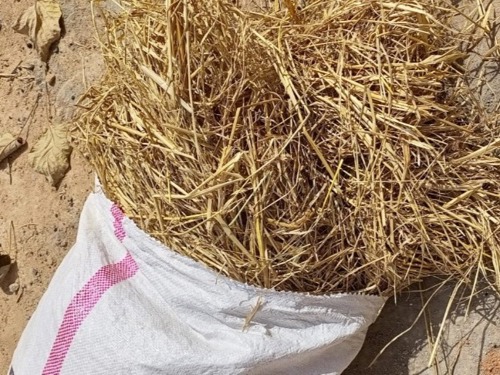
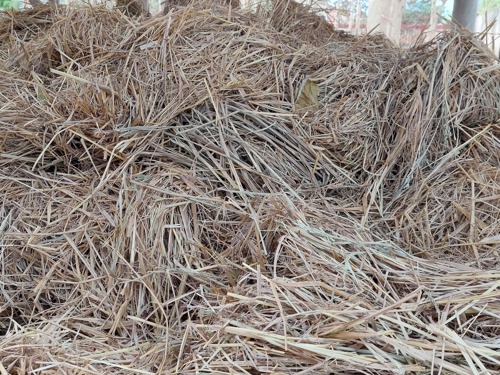

 Back
Back